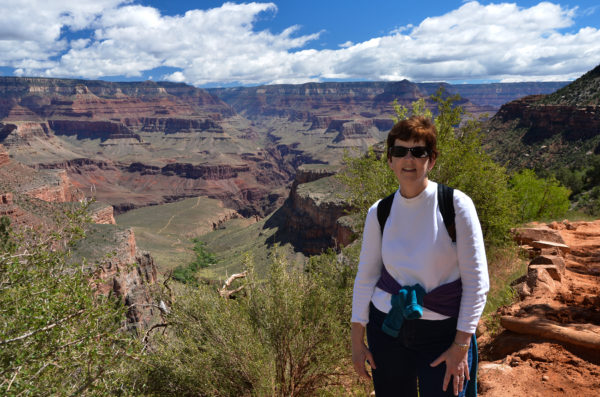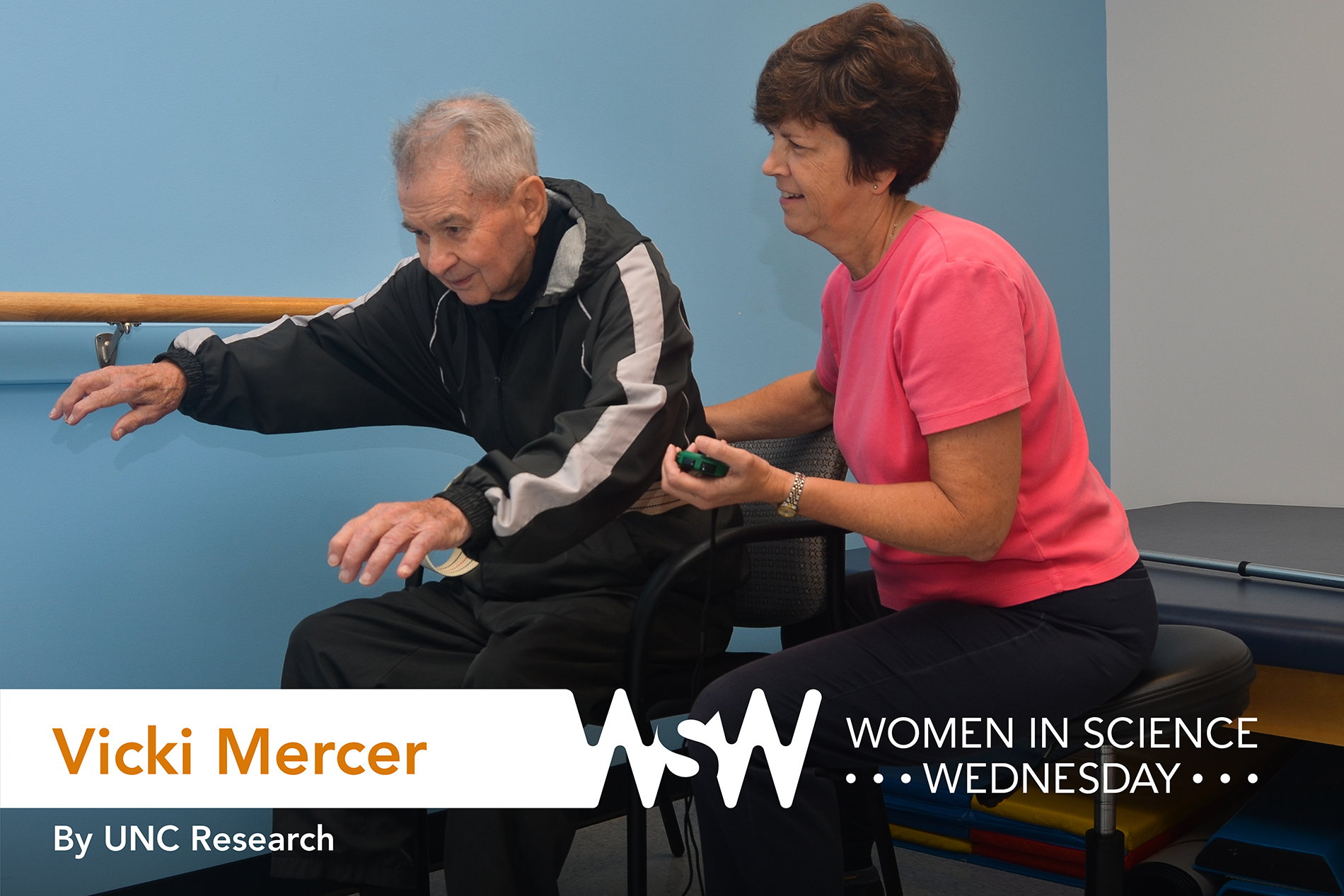When you were a child, what was your response to this question: “What do you want to be when you grow up?”
Describe your research in five words.
“A balancing act for seniors.”
For a long time, I thought I wanted to be a physician — but then I realized how little time physicians get to spend with their patients. So I decided to look for a career that would allow me to develop stronger connections with people who were recovering from injuries or illnesses.
Share the pivotal moment in your life that helped you choose research as a career path.
Although I loved working in clinical practice, I was regularly confronted with clinical questions for which we had no answers. I wanted to learn more — to be able to provide more effective interventions for my patients — so I enrolled in a graduate program at UNC. One of my instructors, Dr. Carol Giuliani, got me excited about research. I couldn’t get enough! I ended up pursuing a PhD at Washington University in St. Louis, and then returned to UNC for my first, and only, position in academia.

In May, Mercer hiked the Bright Angel Trail at the Grand Canyon with her husband, son, and daughter.
What’s an interesting/funny story from your time doing research?
The common verbal encouragement when testing muscular strength in people recovering from stroke is this: “Push! Push! Push as hard as you can!” One day, while testing one study participant in the lab, another was waiting just outside. When we went out to greet the second participant, she looked at us and exclaimed, “It sounded like you were birthing a baby in there!”
What advice would you give to up-and-coming female researchers in your field?
You can do it all — including having a family and a career! One of the advantages of being an academic and researcher is that you can arrange your own schedule. You have certain things that you must accomplish, but exactly when and how you do them is up to you. My other advice: Don’t delay your pursuit of a PhD. Those who spend more than a year or two in clinical practice often find it difficult to return to school, and may have experienced life events that tend to prolong the PhD process. Go straight through, from the physical therapy degree to the PhD and then to a postdoc, so you can get the most out of your research training and launch your research career as early as possible.


